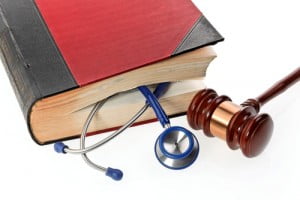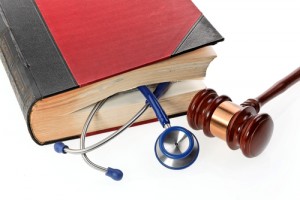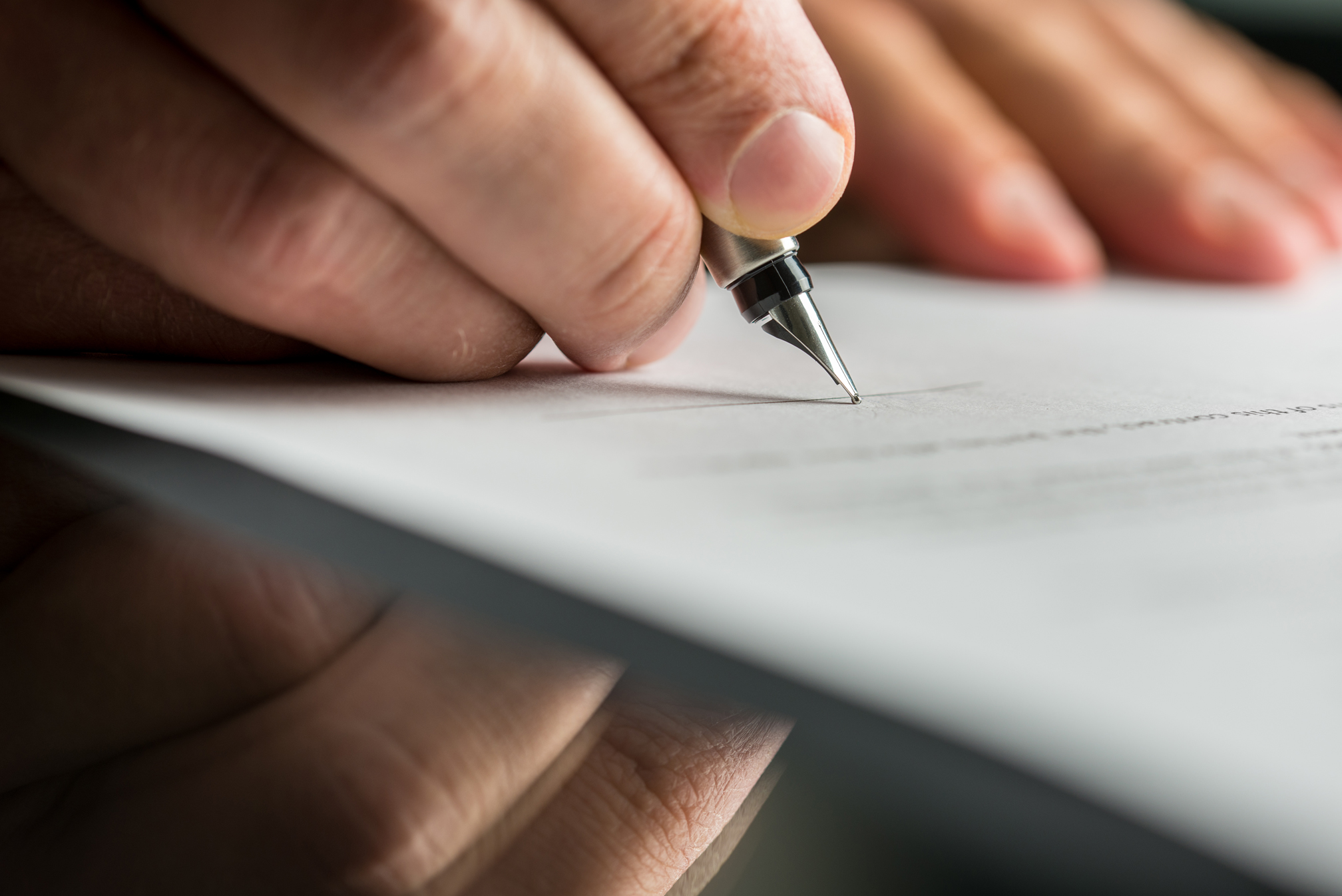Medical Malpractice Basics


Consult with Tampa’s medical malpractice attorneys about your case TODAY!
Some of the most horrific stories you’ll hear about are related to medical malpractice. The wrong leg is amputated, instruments are left inside patients after surgery, misdiagnosed diseases result in completely unnecessary treatments, and the list goes on. Though doctors and other medical professionals are among the most trusted professionals in society, when they make mistakes on the job, those mistakes can cost not only money, but lives.
The horror stories make it seem like medical malpractice cases are obvious and easy to prove, but that’s not always true. Patients don’t have to lose a limb or suffer severe pain to have a claim against their doctor for medical malpractice.
Ultimately, what a medical malpractice patient is required to prove in court is that:
1. The doctor failed to uphold the prevailing standard of care. This basically means that most competent doctors in your area would have diagnosed and treated you more successfully.
2. The doctor’s malpractice resulted in injury or damage to you. This can be small or large, but whether you had to pay for $1,000 of useless medication or whether you lost the use of your leg because of medical malpractice, you simply have to prove that your loss would not have happened if your doctor had done her job reasonably prudently.
Once you determine that you have suffered damage because of medical malpractice, you still need to decide whether you can prove it. It will help to have records of doctor’s bills and medications, your notes from what the doctor told you at each treatment or consultation session, and witnesses who can help prove that the damage did not exist before the treatment. It is often necessary in medical malpractice cases for another doctor or other medical expert to testify as to what the standard of care is for your area, and how your doctor’s medical malpractice caused your damage.
If you feel that you have suffered needlessly because of medical malpractice, it is best to immediately consult with an experienced medical malpractice attorney. Such an attorney can help you decide what your damages are, what you’ll be able to prove, and what you can expect to recover in court.
If you are in need of a legal malpractice, personal injury, medical malpractice, accident, or whistleblower lawyer in Tampa, Florida, the Tampa Bay attorneys of Wagner, McLaughlin & Whittemore would be pleased to speak with you. We fight aggressively to protect the rights of our clients. Click here or call us today at (813) 225-4000 to schedule a free consultation.


Contact the skilled Tampa Auto Accident Attorneys TODAY!
It’s an old adage, but true: An ounce of prevention is worth a pound of cure. Having a skilled attorney who can get you money in an accident settlement is good… but never needing that attorney in the first place is ideal.
Here are a few tips to keep you safe on the roads.
Be Aware: You might be a safe driver, but even you can’t control everything that happens outside your car. That old clunker in the lane next to you might suddenly suffer a malfunction and swerve into your lane. That child playing on the lawn up the street might lose control of his ball and chase it right into your path. That tiny old woman backing her huge car out of her parking space might not realize that you’re driving behind her. Anticipating possible dangers is the first step to avoiding them.
Yield: It does no good to spot a potential accident if you aren’t willing to change your driving pattern. Give way to bad drivers. As legally entitled as you are to be in that space, it generally costs less time and aggravation to save someone from their own stupidity than to suffer the consequences and try to get them to reimburse you.
Don’t Speed: Five miles per hour over the speed limit may feel safe, but it will still cut back on your response time. (It could also limit your recovery if the court determines that you were partially responsible for your damages because you were speeding.)
Limit Distractions: That incoming text message, email, or video-chat request isn’t as important as your life. Nor do you need to tell anyone where you are or where you’re going while you’re driving. While you’re driving, your only job is driving.
Be Calm: Driving angry is never a good idea. Nor is driving while you’re feeling any strong emotion that vies for your attention. If you aren’t able to concentrate on the road, don’t drive. While you’re concentrating on your problems, you could miss potential dangers.
Pull Over: If that text is important, pull over safely and answer it. If your children are hurting each other, don’t just threaten: pull over. If you’re feeling angry enough to do some damage, pull over and throw some rocks at other rocks. If you’re too distracted to drive… don’t.
Most accidents are preventable if you are attentive and ready to adjust your driving to whatever might happen. If another driver’s bad driving happens too fast for you to avoid the accident, however, a great attorney can help minimize the negative consequences.
If you are in need of a legal malpractice, personal injury, medical malpractice, accident, or whistleblower lawyer in Tampa, Florida, the Tampa Bay attorneys of Wagner, McLaughlin & Whittemore would be pleased to speak with you. We fight aggressively to protect the rights of our clients. Click here or call us today at (813) 225-4000 to schedule a free consultation.


Contact the Tampa legal malpractice attorneys TODAY! We can help!
Like any professional in the marketplace, attorneys are not infallible. Though they are often highly intelligent, they are not universally correct. Though they are talented, they are not perfect.
Also, like any other professional, when an attorney’s negligent job performance – called malpractice, or “bad practice” – costs you money, that attorney should be required to compensate you.
Let’s consider that for a moment. If you take your shirts to the dry-cleaner and the dry-cleaner destroys them, wouldn’t you want the dry-cleaner to pay to replace the shirts? Likewise, if a contractor comes to your home, unreasonably breaks a pipe, and destroys a wall, you’d expect him to either fix it himself or cover the cost of having someone else repair the damage. Those things seem very normal to most people.
What is often harder for some unsatisfied clients to decide is whether their attorney should pay for the damages they suffered because of the attorney’s malpractice.
How do you know when you should demand that your attorney compensate you for the negative ramifications of how he did his job? Consider the following potential malpractice flags:
• Did your attorney miss a deadline that made it impossible for you to recover money you would otherwise be entitled to?
• Did your attorney give you advice based on outdated law? Did your reliance on that advice cost you money?
• Were you fined for actions that your attorney told you were legal?
• Have you discovered that your attorney had a conflict of interest that made it unethical for her to represent you on your recent case or contract negotiation?
• Did your attorney mishandle your funds?
• Has your attorney failed to do the work for which you retained him?
If you feel that your attorney’s actions or bad advice has caused you financial damage, you may wish to consult with an attorney skilled in deconstructing what your first attorney did – and what the ramifications were. You wouldn’t let your dry cleaner’s bad performance go unchallenged, so you should also feel free to challenge your attorney’s malpractice, as well.
If you are in need of a legal malpractice, personal injury, medical malpractice, accident, or whistleblower lawyer in Tampa, Florida, the Tampa Bay attorneys of Wagner, McLaughlin & Whittemore would be pleased to speak with you. We fight aggressively to protect the rights of our clients. Click here or call us today at (813) 225-4000 to schedule a free consultation.


Testifying in court can be nerve-wracking. Because our legal system – in Florida and throughout America – is adversarial-based, there’s always going to be someone there who wants you to say something wrong… and who will try to make it happen.
Still, with careful preparation with your attorney and these tips, you should be able to make it through your testimony and feel good about what you said.
Don’t lie.
This seems to be common sense, but it has to be said. Never, ever say anything you know to be untrue on the stand. Not only did you swear to tell the truth before you started testifying, but any lie you utter can haunt you if the other side figures it out. If they can prove you lied just once, everything you said during your testimony is suspect.
Don’t guess.
If you don’t know the answer, say so. Guessing can be as bad as lying, if you guess wrong. If you used to know the answer and can find it in one of the documents you brought to court, you can always ask the court to allow your attorney to let you refresh your memory by looking at the documents. If you’re forced to estimate, estimate as accurately as possible.
Don’t talk about your character.
Making statements such as how you’d “never do something like this” can open the door to a whole host of things that can be used to prove that what you just said was wrong – and they can sound awful even if you’re in the right, this time. Stick with statements about this incident and what you did or didn’t do this time.
Don’t call other witnesses liars.
If ten people witness the same event, you can bet that all ten of them will remember it differently – sometimes very differently. When you testify, keep in mind that you don’t know why anyone else is remembering it differently. You can only say what you remember, yourself. Let the jury decide whether someone is lying (just don’t let it be you).
Your attorney will usually run you through a few practice questions and help you know more about what you can expect when you are testifying. We’ve just listed four things you shouldn’t do or say while testifying. We’ll end with two things you SHOULD do: tell the truth, and listen carefully to the question you are being asked.
If you are in need of a legal malpractice, personal injury, medical malpractice, accident, or whistleblower lawyer in Tampa, Florida, the Tampa Bay attorneys of Wagner, McLaughlin & Whittemore would be pleased to speak with you. We fight aggressively to protect the rights of our clients. Click here or call us today at (813) 225-4000 to schedule a free consultation.

Let the Tampa trial lawyers help you prepare for your trial!

When a civil case goes to trial, the plaintiff is generally required to testify to explain what happened and why she thinks she deserves to be compensated. Whether you were injured in an accident or through the malpractice of a doctor or another attorney, you will likely have to take the stand, where your attorney will help you to explain your side of the story.
Once your attorney is finished with his prepared questions, however, the defendant’s attorney has a chance to ask you questions herself. These questions, as you might imagine, are designed to pick apart what you said, to get you to admit things that help the defense, and, if the defendant is very lucky, to get you to contradict something you previously testified to.
This process is called cross-examination, and it can be a frightening part of testifying if you’re not prepared. Your attorney will likely help you practice for cross-examination and predict the sorts of questions you might have to answer, but you should also keep in mind these general points:
• Cross-examination consists of mostly leading questions, in which the answer (usually yes or no) is suggested in the question (i.e., “You weren’t alone in the car at the time of the accident, were you?” instead of “Were you alone in the car at the time of the accident?”). Therefore, expect to have a series of questions where there is one obvious yes or no answer.
• It’s best to think before you answer any cross-examination question, even if the answer seems obvious. The other attorney wants you to simply agree to everything she says, as quickly as possible. Resist the urge to move things along, and carefully consider the questions before you give your answer. Accuracy is vastly more important than speed.
• If you do disagree with one of the cross-examination questions, go ahead and say so, then offer to explain. You may be allowed to explain immediately or you may have to wait until your attorney can ask you more questions. Don’t be rattled if you aren’t allowed to explain immediately. Your attorney will ask any necessary follow-up questions at the next and typically final stage of questioning, called re-direct examination.
Cross-examination can be stressful, but if you keep your cool, you will come across as confident and credible. And that’s the main goal, isn’t it?
If you are in need of a legal malpractice, personal injury, medical malpractice, accident, or whistleblower lawyer in Tampa, Florida, the Tampa Bay attorneys of Wagner, McLaughlin & Whittemore would be pleased to speak with you. We fight aggressively to protect the rights of our clients. Click here or call us today at (813) 225-4000 to schedule a free consultation.

Work with the Tampa law firm that has over 40 years of experience!
 One of the simplest truths about litigation is that the best and most persuasive evidence usually prevails. If you’ve been injured in
One of the simplest truths about litigation is that the best and most persuasive evidence usually prevails. If you’ve been injured in
an accident and you want the negligent defendant to pay for your medical bills, keeping copies of your medical bills is basic common sense. Few of us expect to be able to show up in a Tampa, Florida courtroom and simply tell the judge how much we “sort of remember” paying the doctor. Instead, we take the time to collect
and present the actual bills.
There are other types of records we should keep, however, that aren’t as obvious. Oftentimes, we file important facts away mentally instead of physically because we assume we’ll never forget them. Then, two years later when we finally get to the trial… they’re gone.
If you’ve been injured in an accident or have suffered actionable loss of any sort, start immediately to keep a log book of everything even slightly related to your case. Your attorney will help you decide what is important later, but for now your log could help you preserve your claim and even increase your damage award.
Write in your log book regularly, and consider the following categories of information to keep track of:
• Daily pain: Where does it hurt? How badly? Are there any new pains? Has anything happened that made your pain worse? Better? How well is your pain responding to medication?
• Doctor appointments: Who did you see? What did she say? Did you discuss any complications? What is the preferred course of treatment? Are you following her advice? Did you get a second opinion? Did you see a specialist? How far did you drive to attend appointments? What medications and/or medical devices did the doctor recommend?
• Employment: Did pain or doctor’s appointments cause you to miss work? Were you able to use paid time off or did your paycheck suffer? Is your injury from the accident making it difficult to do your job? How? Are there ways to compensate for the pain and still keep your job?
• Family life: Are you able to meet your family responsibilities? Enjoy time and intimacy with your spouse? Did your injury make you miss children’s recitals or cut back on other activities with your spouse and kids?
• Recreation: Are you still able to enjoy the activities you previously enjoyed? In what way is the injury making your normal activities difficult?
Not everything in your log will be important, and your attorney will help you decide how much of it to use. If nothing else, however, reviewing it during negotiation and before trial will help you present a clearer picture of the consequences you suffered because of the accident.
If you are in need of a legal malpractice, personal injury, medical malpractice, accident, or whistleblower lawyer in Tampa, Florida, the Tampa Bay attorneys of Wagner, McLaughlin & Whittemore would be pleased to speak with you. We fight aggressively to protect the rights of our clients. Click here or call us today at (813) 225-4000 to schedule a free consultation.

Discuss your options with a Tampa Civil lawyer before you settle!
In almost every civil case, you will go through a process of negotiation with the other side, where you attempt to reach an agreement without the uncertainty of a trial. Though there are different considerations in different types of cases – for example, a legal malpractice case will look very different from an accident case – there are basic questions to consider in most types of cases. Your attorney will help you evaluate your potential claim in each area.
 First, you should assess the amount of your actual damage. If you were injured in an accident, this could be the amount of the hospital bills and any unpaid days off work. In a legal malpractice case, this is the amount of money you actually lost because of an attorney’s negligence. This category of damage deals in known numbers and is, in many cases, comparatively easier to calculate.
First, you should assess the amount of your actual damage. If you were injured in an accident, this could be the amount of the hospital bills and any unpaid days off work. In a legal malpractice case, this is the amount of money you actually lost because of an attorney’s negligence. This category of damage deals in known numbers and is, in many cases, comparatively easier to calculate.
Next, consider other, less obvious, categories of compensation, such as pain and suffering or opportunity cost. Are you still suffering physically or mentally because of your accident? What will your future care cost? Did the attorney’s actions make it so that you lost out on a business deal you would otherwise have benefited from? How much profit might you have made if you’d been able to participate? How much did others who did part![]() icipate make? This category of damage deals a lot in educated guesswork and trying to predict the future, so it’s much harder to calculate.
icipate make? This category of damage deals a lot in educated guesswork and trying to predict the future, so it’s much harder to calculate.
Finally, consider potential punitive (punishment) awards. Was the behavior of the defendant particularly outrageous? Might the court or the jury want to make an example of the defendant by awarding you more money than you really need to cover your losses? This category of award is very difficult to predict, but your attorney will be able to tell you whether there is any chance of this sort of award.
Once you have considered all possible damage claims, consider the strength of your evidence for each one. Your attorney will help you calculate the odds that you will prevail at trial in each category, and will counsel you on what sort of settlement you may want to consider. Remember that the uncertainty of a trial does not allow guaranteed results, so once you’ve calculated your possible damages, keep your expectations realistic. It is sometimes better to settle for your actual damages than to go to trial, where the other side will try to convince the jury to award less than you need or to find that the defendant is not liable altogether — in which case you would not recover anything.
If you are in need of a legal malpractice, personal injury, medical malpractice, accident, or whistleblower lawyer in Tampa, Florida, the Tampa Bay attorneys of Wagner, McLaughlin & Whittemore would be pleased to speak with you. We fight aggressively to protect the rights of our clients. Click here or call us today at (813) 225-4000 to schedule a free consultation.


Work with experienced Tampa Trial Attorneys. We can help you prepare for your day in Court.
You’ve made the long walk to the witness stand, you’ve sworn to tell the truth, the whole truth, and nothing but the truth, you’ve sat down, and now a couple of attorneys in suits are going to take turns asking you questions. Sitting nearby behind a tall desk is the judge, robed in black and looking official.
Also nearby is a jury box filled with a group of your “peers” whom you’ve never met. Some of them do not look all that impressive, several are wearing jeans, one is hard of hearing, and a couple are young enough to be your children… and yet, it is this group of people you must convince. This collection of ordinary teachers and dentists and construction workers will weigh whether you are telling the truth and whether you should get the outcome you want. Under our great system of jury trials, it is the jury who will decide your fate.
More than anyone else in that courtroom, it is the jury you want to connect with. You want to be able to help them to see you as a real person with real emotions and real problems that they want to help you fix. Looking at the jurors while you are testifying will help you build a human connection with each of them.
In our system of justice, the jurors do not ask a lot of the questions, and when they do it’s always through the court, so you never have a chance to have a real conversation with them. The best you can do is to make eye contact. Some attorneys prefer that you speak directly to the jurors as if they asked you the question themselves; other attorneys prefer that you maintain most of your eye contact with the attorney asking the questions but occasionally look at the jurors. Your attorney will tell you before trial what he or she prefers. Either way, let the jury see how sincerely you feel about the information you’re sharing. Let them feel what you are saying about your accident or about how your doctor committed malpractice. Use your heart, voice, and eyes to help them understand.
If you are in need of a legal malpractice, personal injury, medical malpractice, accident, or whistleblower lawyer in Tampa, Florida, the Tampa Bay attorneys of Wagner, McLaughlin & Whittemore would be pleased to speak with you.
We fight aggressively to protect the rights of our clients. Click here or call us today at (813) 225-4000 to schedule a free consultation.


Work with the skilled Tampa Trial Attorneys. We are experienced at preparing our clients for their trial date.
First, let’s talk about why you should pay attention to your clothing in general. Most people are aware when they get dressed each morning that the clothes they choose will make an impression on everyone they meet. Most people are also aware that they don’t always want to make the same impression in every setting. For example, the clothes you wear to church are probably not the clothes you wear to the club, because you want the people at church to see you as conservative and faithful and you want the people at the club to think you’re cool or sexy or available.
At court, you generally want to be seen as reasonable and respectful. If the judge and jury see you and immediately think “sexy,” you’ve missed the mark a bit. If they see you and think you’re dirty or unkempt or someone they wouldn’t want to run into in a dark alley, you’ve missed the mark a lot.
Despite the wonderful Florida sunshine, you shouldn’t walk into a Florida courtroom for a medical malpractice or accident lawsuit looking like you’re ready for the beach. The judge has to wear a big black robe; you shouldn’t flaunt how comfortable you are in your flip-flops and shorts.
It’s not always necessary to dress like an attorney, though. Attorneys have their own dress code, and you don’t usually have to look like you argue cases for a living.
With that in mind, consider this short list of clothes that might get you asked to go home and change:
• Hats, unless for religious reasons
• Tank tops or halter tops or any tops that show off your cleavage, midriff or back
• Short shorts, skirts, or any clothing that shows off too much of your upper thighs
• Ripped or stained jeans or shirts
• T-shirts with offensive or controversial slogans
• Flip-flops
• Beach attire
What actually works best for your particular case or the particular occasion will vary. For most depositions, it’s okay to wear dressy casual clothes (nice, clean jeans with a blouse or polo shirt), while for most trials, it’s better if you wear business casual (slacks or skirts, button-down shirts) or, better yet, a suit or conservative dress.
Always ask your attorney for guidance in selecting your outfit for court.
If you are in need of a legal malpractice, personal injury, medical malpractice, accident, or whistleblower lawyer in Tampa, Florida, the Tampa Bay attorneys of Wagner, McLaughlin & Whittemore would be pleased to speak with you. We fight aggressively to protect the rights of our clients. Click here or call us today at (813) 225-4000 to schedule a free consultation.

